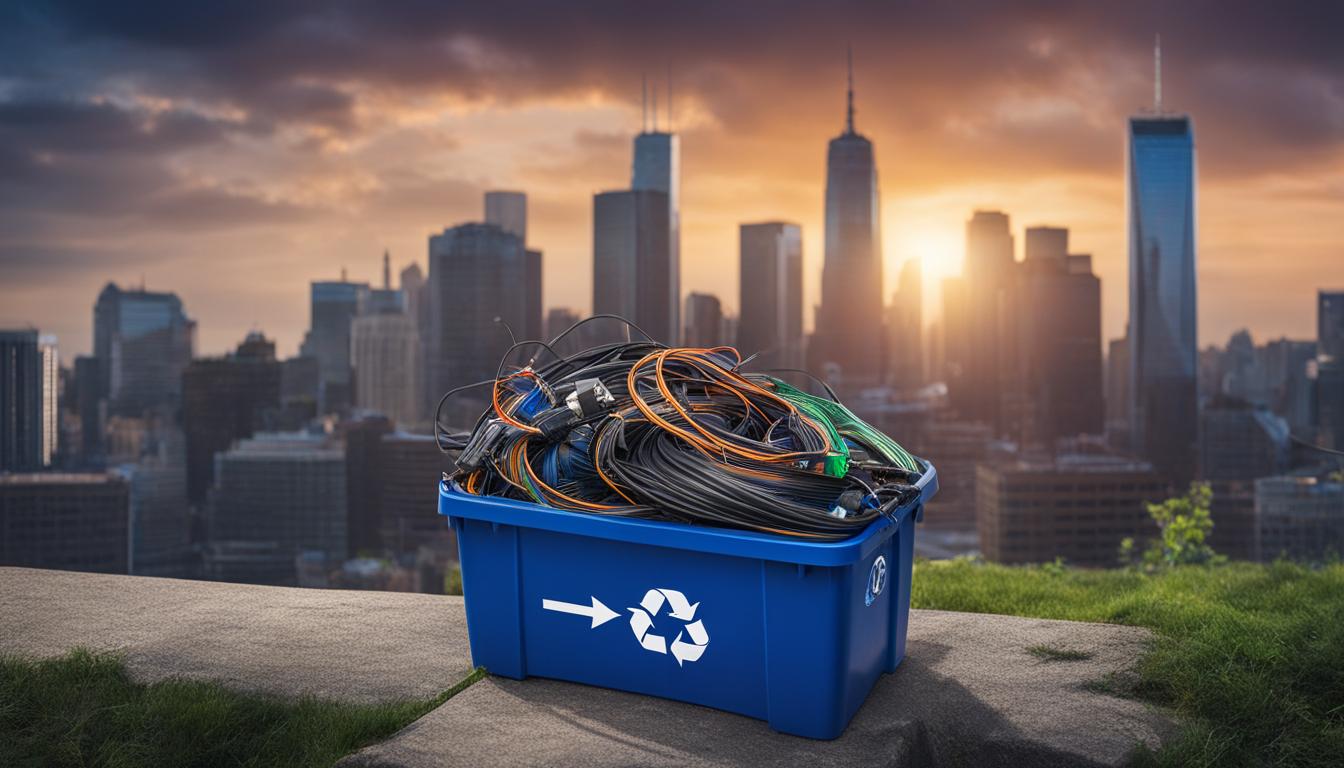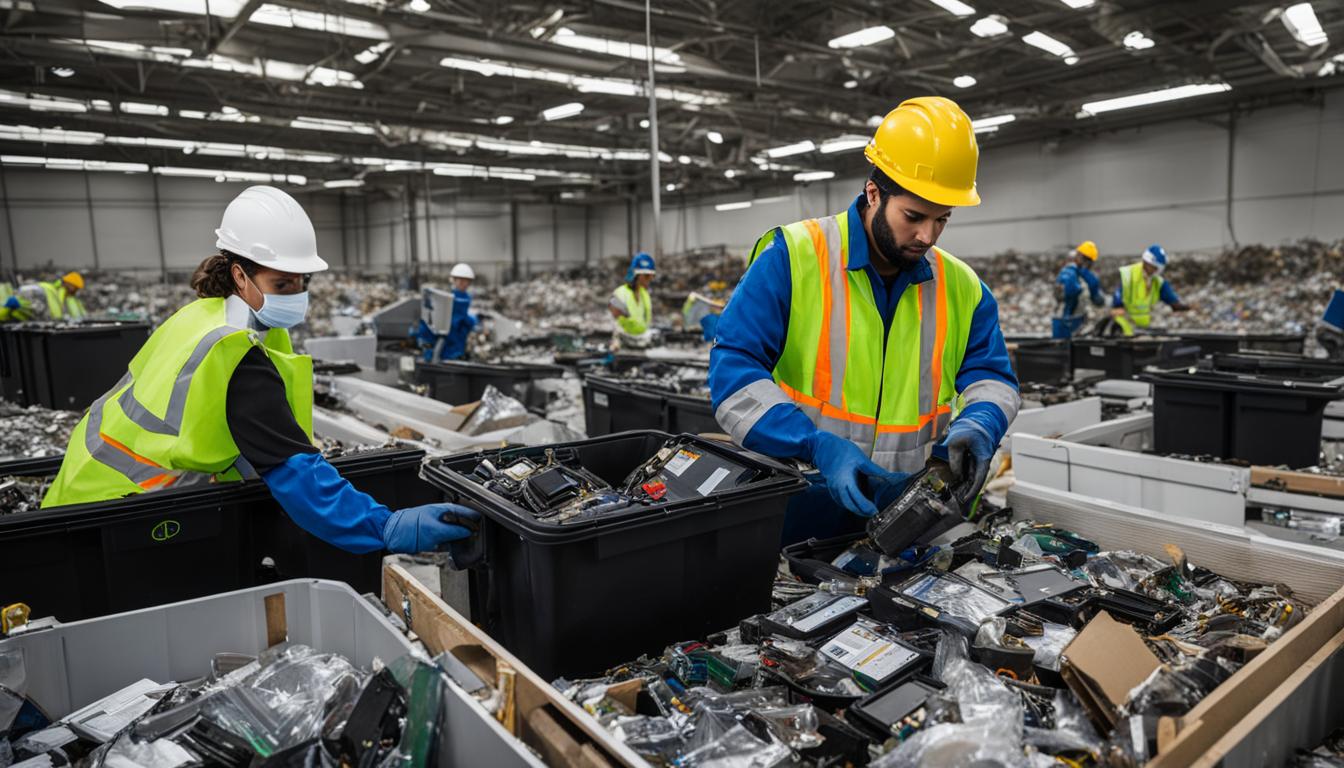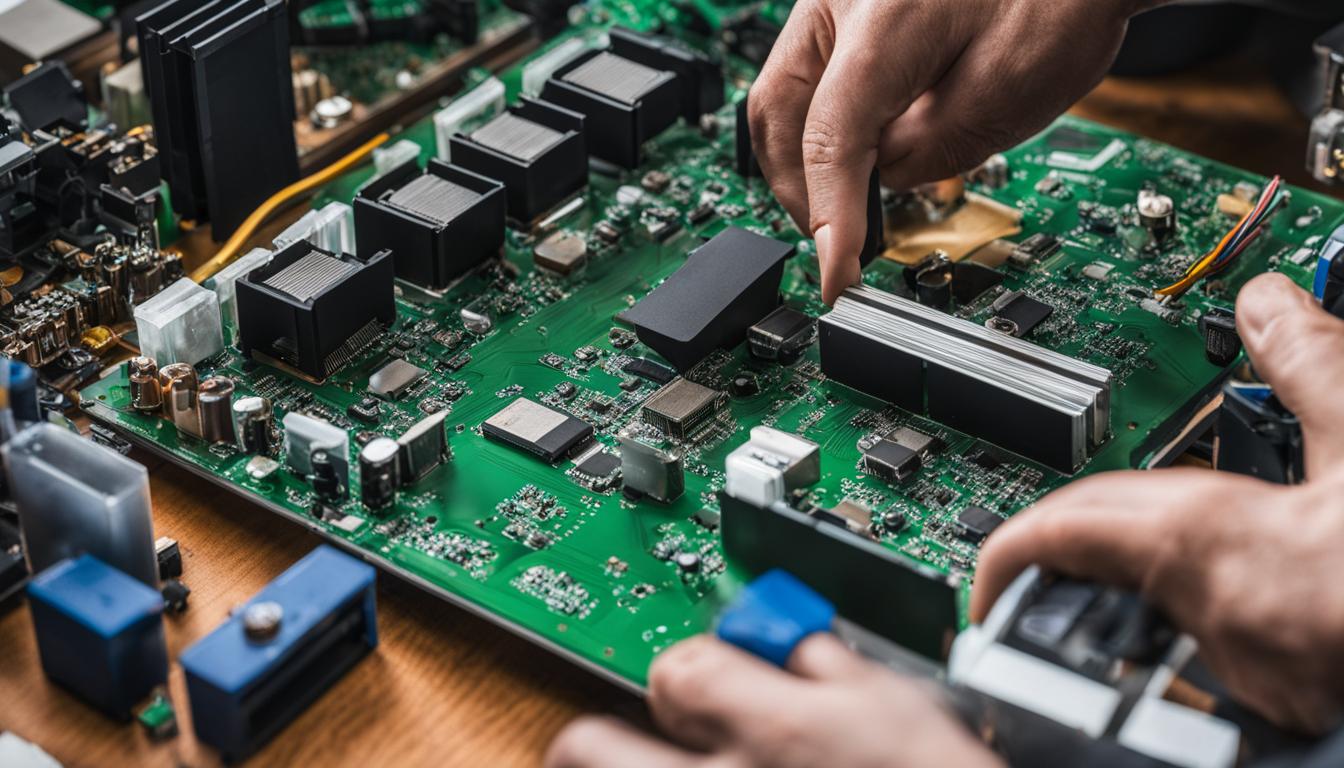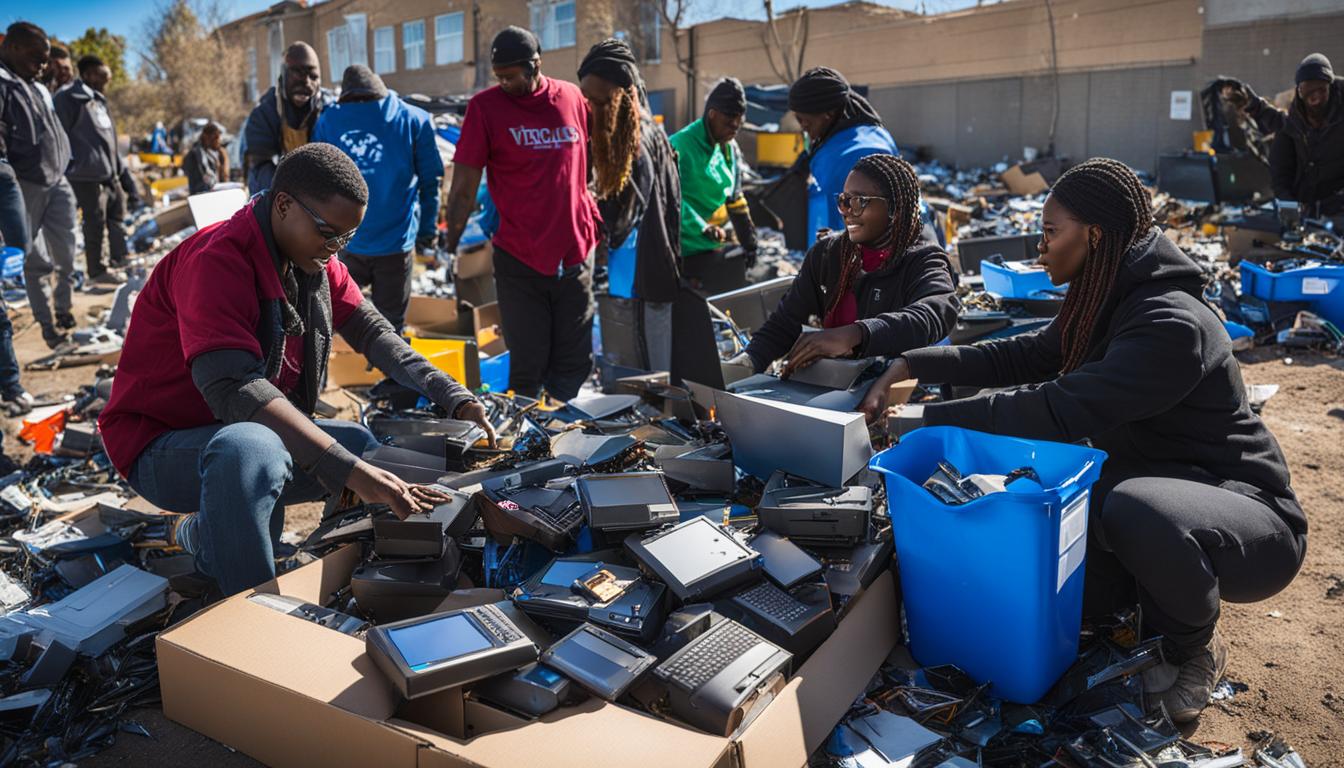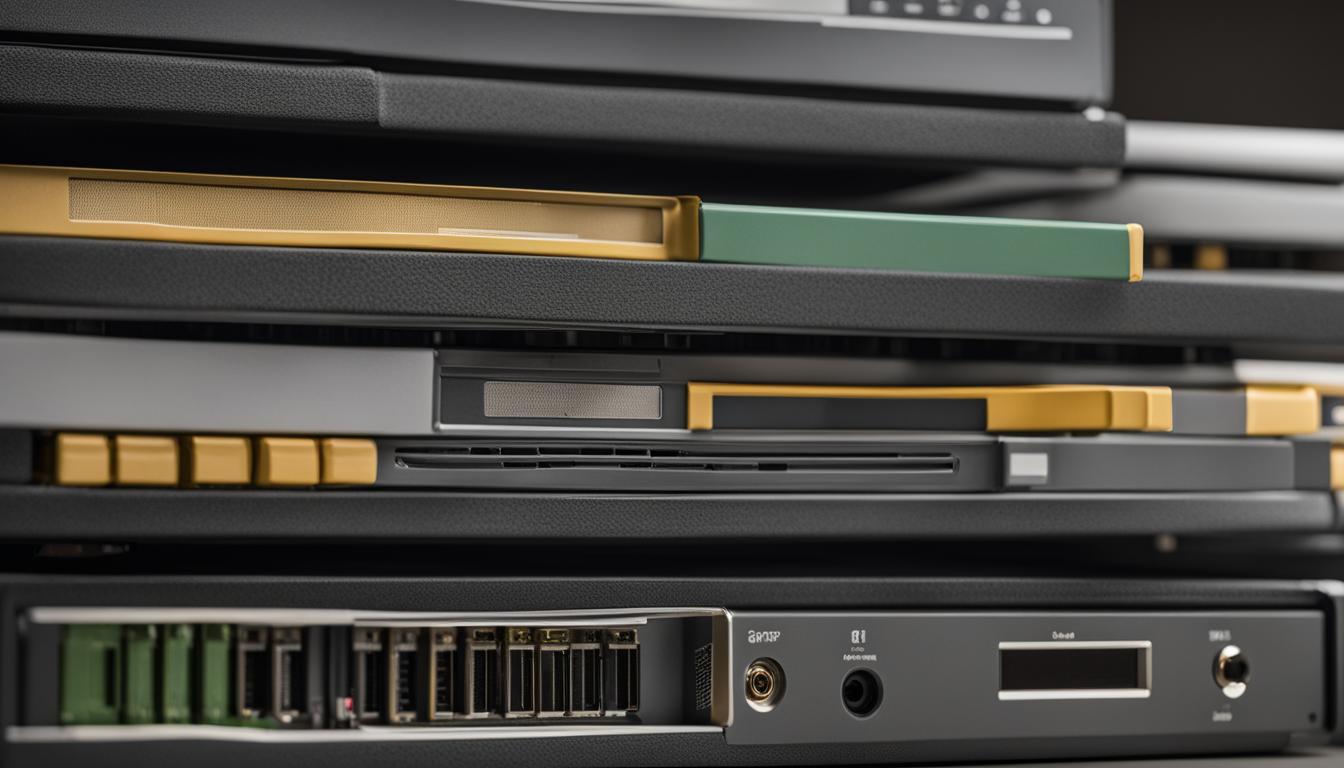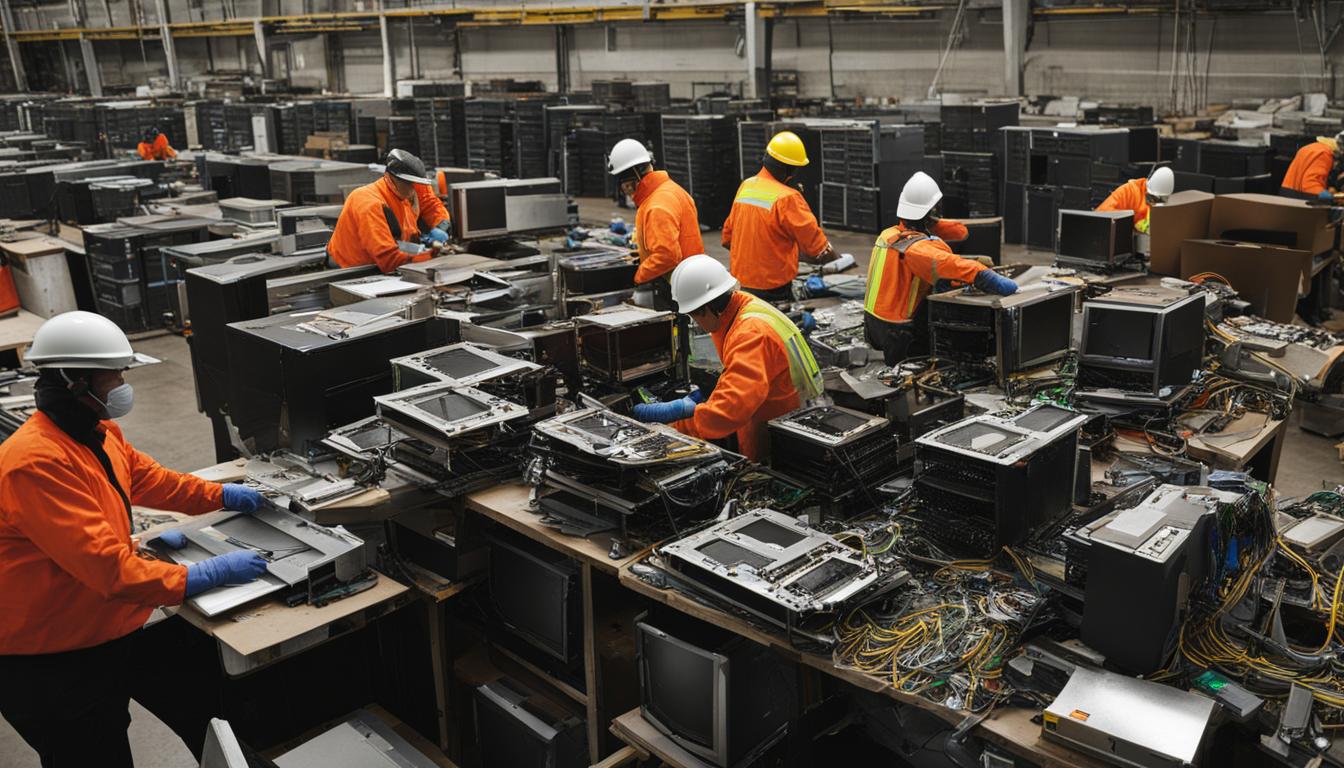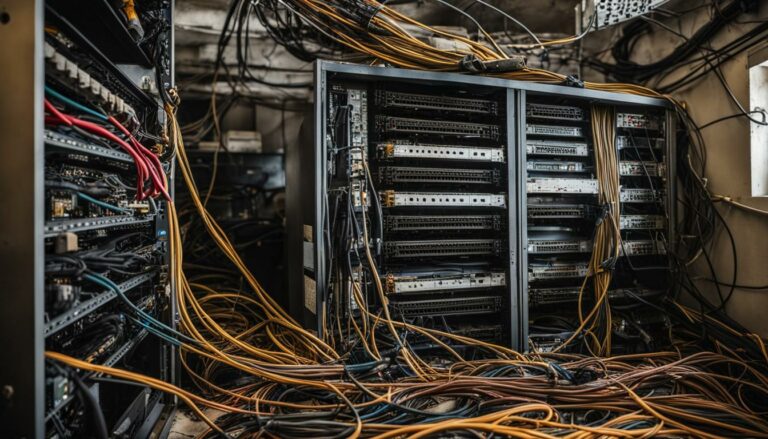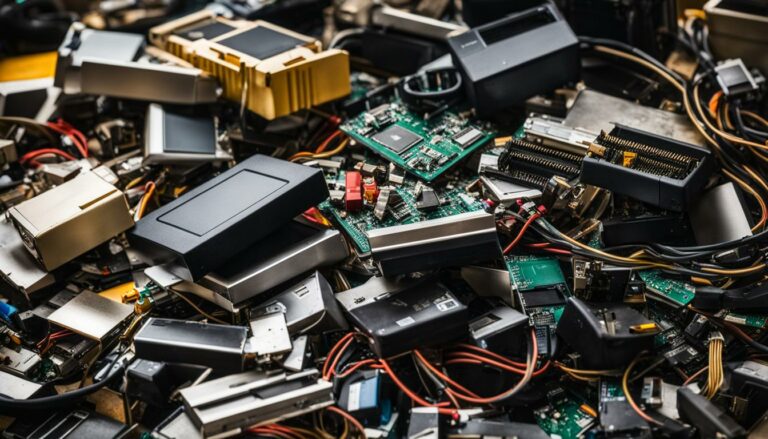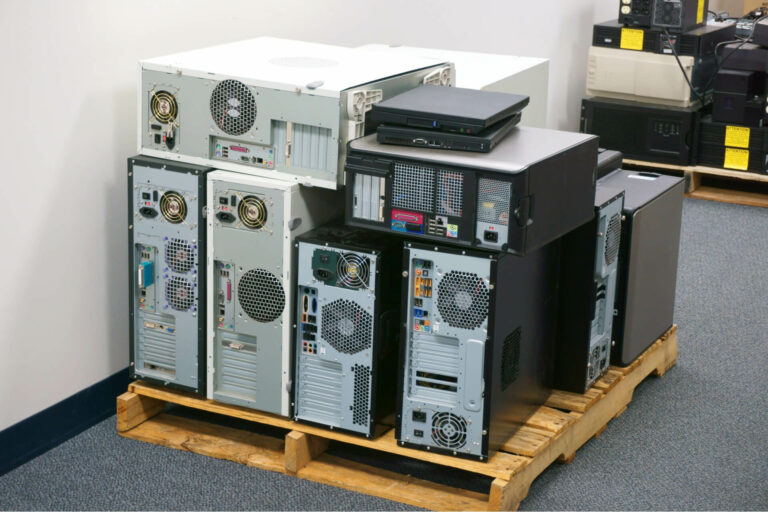Best Practices for Disposing of Network Cables and Accessories
When it comes to disposing of network cables and accessories, it is important to follow best practices to ensure proper recycling and minimise harm to the environment. Many electronics contain hazardous substances that can be harmful if not disposed of correctly. In order to dispose of network cables sustainably, it is essential to avoid throwing them in the trash or recycling bin, as they may not be accepted by local recycling programs. Instead, there are several steps you can take to recycle network cables properly, including removing any valuable information, exploring trade-in options, and finding electronic stores that offer recycling programs.
Key Takeaways
- Properly disposing of network cables is crucial for the environment and waste management.
- Avoid throwing network cables in the trash or recycling bin.
- Remove valuable information from network cables before recycling them.
- Explore trade-in options or find electronic stores with recycling programs.
- Recycling network cables helps reduce electronic waste and recover valuable resources.
Why Should You Recycle Network Cables?
Recycling network cables is vital for the effective management of electronic waste and the promotion of sustainable recycling practices. With electronic waste becoming one of the fastest-growing waste streams globally, it is crucial to understand the importance of recycling network cables to minimize environmental impact and preserve valuable resources.
When network cables are recycled, valuable materials can be recovered and reused in the production of new products, reducing the need for extracting and manufacturing raw materials. By preventing these cables from ending up in landfills, we can also prevent hazardous substances, such as lead and mercury, from contaminating the environment.
Proper recycling of network cables is not only environmentally responsible but also legally mandated in many regions. By recycling our network cables, we not only comply with regulations but also contribute to a cleaner and healthier environment for future generations.
The Benefits of Recycling Network Cables:
- Reduces electronic waste accumulation
- Preserves valuable resources
- Prevents hazardous substances from polluting the environment
- Complies with legal regulations
“Recycling network cables is a responsible and sustainable way to dispose of electronic waste and contribute to a cleaner and healthier environment.”
| Recycling Network Cables: | Benefits: |
|---|---|
| Reduces electronic waste accumulation | Prevents unnecessary accumulation of network cables in landfills |
| Preserves valuable resources | Recovers materials for reuse, reducing the need for extraction |
| Prevents hazardous substances from polluting the environment | Minimizes the release of harmful substances into the ecosystem |
| Complies with legal regulations | Ensures adherence to recycling and waste management laws |
By recognizing the importance of recycling network cables, we can all contribute to a more sustainable and responsible approach to electronic waste management. Together, we can make a positive impact on the environment and help build a greener future.
How Can You Dispose of Network Cables Sustainably?
When it comes to responsibly disposing of network cables, it’s important to follow proper disposal methods to ensure sustainable recycling. One of the first steps is to remove any valuable information from the devices before disposing of them. This can be done by securely wiping the devices clean of data or transferring important files and photos to cloud storage or durable USBs.
If your network cables and accessories are still in working condition, exploring trade-in options is a great way to give them a second life. Many local electronic stores offer trade-in programs where you can exchange your old equipment for store credit towards new purchases. This not only promotes sustainability but also allows others to benefit from your unwanted cables.
However, if trade-in is not possible or if your network cables are no longer functional, it’s important to choose a responsible recycling method. Many electronic stores have recycling programs specifically designed to handle electronic waste, including network cables. These programs ensure that the materials are properly disassembled and repurposed, minimizing their impact on the environment and promoting responsible recycling practices.
| Benefits of Sustainable Disposal | Responsible Recycling Methods |
|---|---|
|
|
By taking these steps to dispose of network cables sustainably, you can contribute to a cleaner and healthier environment while promoting responsible recycling practices. Remember, your efforts make a difference in reducing electronic waste and preserving valuable resources for future generations.
When Should You Recycle Network Cables?
Knowing when to recycle network cables is essential for efficient waste management and sustainable practices. Here are some instances when recycling network cables is necessary:
- Functionality: If the network cables are no longer functioning and cannot be repaired, it is time to recycle them. It’s important to avoid holding onto cables that serve no purpose and may contribute to clutter.
- Technological upgrades: When upgrading to a newer or more advanced network system, recycling the old cables is a responsible choice. This allows for a smoother transition and ensures outdated equipment doesn’t accumulate unnecessarily.
- Damaged or worn out: If the network cables have become damaged or worn out over time, recycling them is the appropriate course of action. This prevents potential hazards and helps maintain a safe environment.
- Transitioning to wireless networks: In today’s rapidly evolving technology landscape, many households and businesses are transitioning to wireless networks. In such cases, recycling the network cables that are no longer needed is the logical step to take.
- Susceptibility to electromagnetic interference: Network cables that are susceptible to electromagnetic interference may lead to compromised network connectivity. Recycling them ensures that network performance remains optimal.
| When to Recycle Network Cables |
|---|
| Network cables are no longer functioning |
| Technological upgrades are taking place |
| The cables have become damaged or worn out |
| Transitioning from wired to wireless networks |
| Cables are susceptible to electromagnetic interference |
By recycling network cables in these situations, waste management efforts are enhanced, and the recycling process becomes more efficient. It is essential to stay proactive in recognizing these instances and take appropriate action to contribute to a more sustainable environment.
Where Can You Recycle Network Cables?
When it comes to responsible recycling of network cables, there are several options available. Taking your cables to local electronic stores that offer recycling programs is a convenient choice. These stores have the expertise and resources to disassemble and repurpose the cables safely. It is advisable to check if they require a small fee or deposit for handling the recycling process.
Another avenue to explore is local waste management facilities or recycling centers. These facilities may accept electronic waste, including network cables, as part of their recycling programs. By dropping off your cables at these centers, you can ensure that they are being recycled in an environmentally friendly manner.
If you’re looking to make a positive impact with your network cables, consider donating them to organizations and non-profits that focus on STEM programs or projects. These organizations often accept electronic donations for educational purposes. By donating your cables, you not only contribute to responsible recycling practices but also support the development of future technologists and innovators.
Remember, the key to responsible recycling of network cables is to research and utilize recycling options that prioritize environmental sustainability. By choosing the right recycling channels, you can ensure that your network cables are disposed of in an eco-friendly and responsible manner.
| Recycling Option | Description |
|---|---|
| Local Electronic Stores | Stores offering recycling programs for network cables and accessories |
| Waste Management Facilities | Local facilities that accept electronic waste for recycling |
| STEM Organizations | Non-profit organizations focused on STEM programs accepting electronic donations |
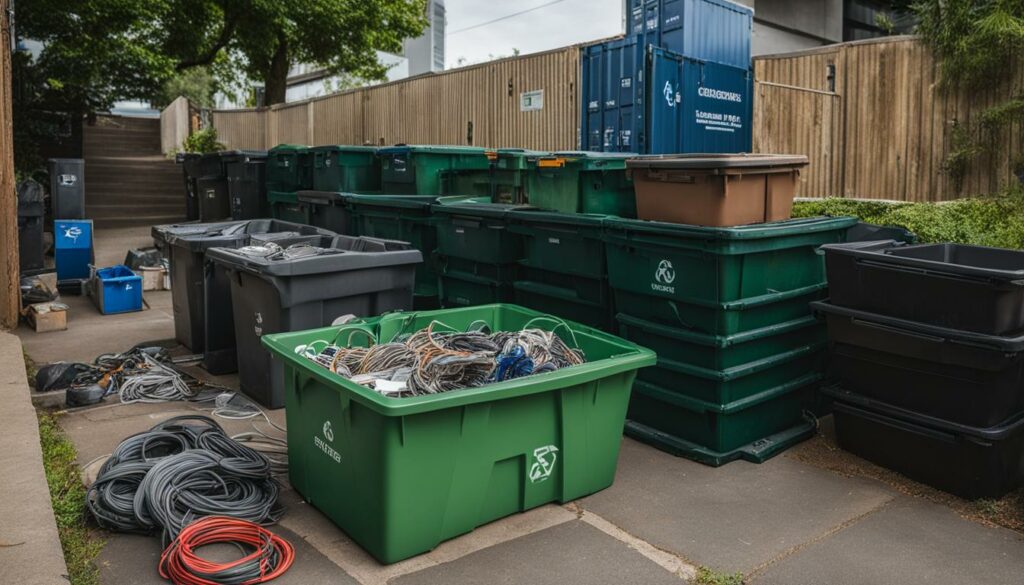
“The future of our planet depends on responsible recycling practices. By recycling network cables, we can contribute to a cleaner and healthier environment for generations to come.” – Environmental Recycling Advocate
What to Do With Old Network Cables?
If you have old network cables that are no longer needed, there are several options for disposing of them responsibly. One option is to bring them to a retail store like Best Buy, which often has kiosks for recycling electronics. Best Buy accepts rechargeable batteries, wires, cords, cables, and plastic bags for recycling. By taking your old network cables to Best Buy, you can ensure that they are recycled in an environmentally friendly way, reducing waste and promoting sustainable practices.
Another option for disposing of old network cables is to sell them as salvage at a metal recycling center. Pure copper wire, often found inside network cables, is highly sought after in the recycling industry. By selling your old cables as salvage, you not only contribute to waste reduction but may also earn some extra money. It’s a win-win situation!
If your network cables are still in good condition and you know someone who may find use for them, consider giving them to friends or family members. Networking equipment can be expensive, and someone else may appreciate the opportunity to reuse your old cables. You can also donate your old network cables to STEM programs or projects for educational purposes. Many organizations and non-profits focus on promoting science, technology, engineering, and math education, and they often accept electronic donations to support their initiatives.
Table: Recycling Options for Network Cables
| Option | Description |
|---|---|
| Bring them to a retail store with recycling kiosks | Stores like Best Buy often have kiosks where you can drop off your old network cables for recycling. |
| Sell them as salvage at a metal recycling center | Many metal recycling centers accept network cables as salvage, particularly if they contain pure copper wire. |
| Give them to friends or family members | If your network cables are still in good condition, consider giving them to someone who may find use for them. |
| Donate them to STEM programs or educational projects | Organizations and non-profits focused on STEM education often accept electronic donations, including network cables, for educational purposes. |
Conclusion
Disposing of network cables and accessories in a sustainable and responsible manner is crucial for minimising environmental impact and promoting proper waste management. By following best practices such as removing valuable information, exploring trade-in and recycling options, and donating to STEM programs, network cable recycling can be done effectively. It is important to be proactive in recycling network cables and contributing to a cleaner and healthier environment.
Recycling network cables not only helps reduce electronic waste but also allows for the recovery of valuable resources for use in producing new products. By choosing responsible recycling methods and avoiding landfill disposal, we can prevent hazardous materials from harming the environment. Properly disposing of network cables that are no longer functioning or needed ensures that they do not accumulate as useless materials.
There are various options for recycling network cables, including local electronic stores with recycling programs and waste management facilities. Additionally, donating network cables to organizations and non-profits focused on STEM programs can contribute to educational initiatives. By making use of these recycling options, we can ensure that network cables are recycled responsibly and contribute to environmental sustainability.
Let’s take the necessary steps to dispose of network cables sustainably and promote environmental recycling. Together, we can make a positive impact on the health of our planet and create a more efficient waste management system. Join the efforts in network cable recycling and contribute to a cleaner and greener future.
FAQ
What should I do with network cables and accessories that I no longer need?
It is important to recycle network cables and accessories properly to minimize harm to the environment. Instead of throwing them in the trash or recycling bin, consider removing any valuable information and exploring trade-in or recycling options.
Why is it important to recycle network cables?
Recycling network cables helps reduce the impact of electronic waste on the environment. It allows valuable resources to be recovered and used in the production of new products. Additionally, it prevents hazardous materials from ending up in landfills or being illegally exported to developing countries.
When should I recycle network cables?
You should recycle network cables when they are no longer functioning, when you are upgrading your technology, when the cables become damaged or worn out, when transitioning from wired to wireless networks, or when they become susceptible to electromagnetic interference.
Where can I recycle network cables?
To recycle network cables, you can take them to local electronic stores that offer recycling programs. You can also check with waste management facilities or recycling centers in your area. Additionally, organizations and non-profits focused on STEM programs often accept electronic donations for educational purposes.
What can I do with old network cables?
If your old network cables are still in working condition, you can explore trade-in options at local electronic stores. Another option is to bring them to retail stores like Best Buy, which often have kiosks for recycling electronics. You can also sell them as salvage at metal recycling centers or consider donating them to friends, family, or STEM programs.
How can I dispose of network cables sustainably?
To dispose of network cables sustainably, start by removing any valuable information from the devices. This can be done by wiping the devices clean of data or securely storing important files and photos. If trade-in options are not available, contact electronic stores with recycling programs to safely recycle the network cables and accessories.

